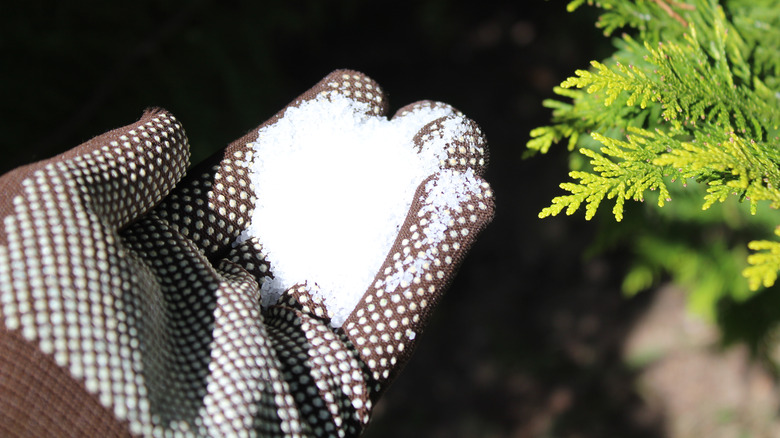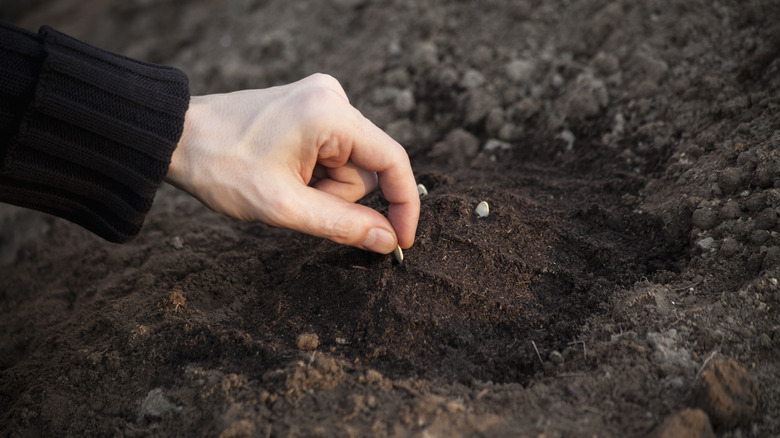Can Epsom Salt Help Germinate Your Seeds? Here's What To Know
For years, some home gardeners have sworn by the use of Epsom salt to keep certain plants healthy. Its key ingredient, magnesium sulfate, may help provide certain plants with these nutrients. However, some people also claim that the product makes plants more productive and even helps to germinate seeds. Epsom salt may indeed provide some benefits to a home garden, especially if the soil is deficient in magnesium, but seed germination is not a widely accepted benefit among horticultural experts.
Magnesium is an important nutrient that supports plant health by helping plants form chlorophyll. To that end, Epsom salt is sometimes used as a complement with commercial fertilizers to help certain flowering plants thrive, including petunias and pansies. Some gardeners even swear by Epsom salt for their roses, but it may not be the best solution. Most garden plants are not low on magnesium, and too much magnesium can cause its own unwanted effects.
Nevertheless, since this method is perceived as a way to make plants more productive, home gardeners sometimes try to use Epsom salt for other uses like seed germination. The problem is there's just not enough evidence to back up Epsom salt as a method for germinating seeds, so your efforts could end up being a waste of time and money, and sometimes even harmful to established plants.
Why you shouldn't rely on Epsom salt for seed germination
Using Epsom salt to germinate seeds lacks scientific backing. There's no research showing that more magnesium sulfate will guarantee better seed germination. On the contrary, too much magnesium sulfate in the soil from Epsom salt applications can cause plant injuries, stunted growth, and deficiencies in other important nutrients like calcium and potassium.
It's also worth knowing the basics of seed germination and what it means for your garden. Overall, even if your soil is magnesium-deficient, seeds do not require magnesium to germinate. In fact, seeds don't typically require external nutrients at all. All they need is sunlight, water, warm soil temperatures, and oxygen. When such conditions are met, a seed can germinate into a seedling without the addition of Epsom salt or other nutrients. At this stage of life, a plant seed provides nutrients to itself from its endosperm.
If you're concerned about a lack of magnesium in your soil for established plants, though, consider having it tested. Better yet, if you have a university extension office nearby, you may be able to take a small sample of soil to them to accurately diagnose the problem. A confirmed magnesium deficiency in your soil is the only scenario in which the addition of Epsom salt might be an appropriate remedy. At the same time, Epsom salt is not considered a cure for plants' magnesium deficiency as it doesn't fix the root issue long-term. While Epsom salts are used in cases of intensive cropping within agricultural settings, such uses are not necessarily appropriate for the needs of a typical home garden.

